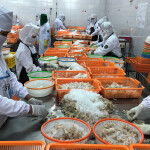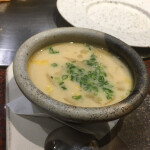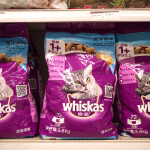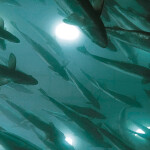Ivan Stupachenko is a Russian freelance business writer reporting from St. Petersburg for Russian and international publications on various topics. He has been a print and an online journalist for 18 years at business newspaper Kommersant. Ivan also works as an editor for St. Petersburg Travel Guide and writer for Business St. Petersburg, the city’s biggest business publication
Author Archive
The Russian Fishery Company (RFC), one of the biggest players in Russia’s seafood industry, has proposed drastic changes to the management of the national fishery sector, which have been met by opposition from other fishing companies and some government officials.
In early August, RFC sent a letter to Russian Prime Minister Mikhail Mishustin to push for an expansion of the investment quota program, which gave fishing companies
… Read MoreIn the first six months of 2020, Russia exported seafood 6.7 percent more than in the corresponding period of 2019, reaching 1.16 million metric tons (MT) ...
Photo courtesy of Alexander
… Read MoreBack in 2017, a fish feed plant of Karelskiye Rybnye Korma (Karelian Fish Feeds) was inaugurated in the Republic of Karelia. MK Karelia, the local newspaper, was invited to cover the inauguration ceremony, but it received a rather unexpected wish from the plant’s owners: it was forbidden to take pictures of the equipment.
According to the company, critical to its efforts to formulate a successful fish feed for Arctic char was an ingredient
… Read MoreFrom 1 June through 1 September, Russian commercial fishermen hauled in just 250,265 metric tons (MT) of salmon, 44 percent of the record-breaking haul of 2018 ...
Photo courtesy of Konstantin
… Read MoreThree Russian fishing companies and one trade association have signed an agreement to voluntarily reduce the use of bottom trawls in three zones of the Barents Sea.
The signatories to the agreement are Norebo Group, Arkhangelsk Trawl Fleet (ATF), F.E.S.T. Group, and The Fishing Industry Union of the North, a non-government organization uniting a few dozen fisheries. The agreement, which is open for signing by other parties, is aimed at the
… Read MoreRussian start-ups and scientists are steaming ahead with efforts to replace imported fish feeds with local produced ones for the country’s growing aquaculture sector.
A surge in aquaculture production and the backing of fisheries authorities, have spurred on the move to boost the local aquafeed industry. Russian aquaculture has been on a steady rise since early the 2010s. Over the past 10 years, the amount of farmed fish
… Read MoreRussia’s total allowable catch (TAC) of opilio crab in 2020 will be increased, thanks to the efforts of fishery scientific organizations and investments into expeditions that have discovered new stocks of the species …
Photo courtesy of Pasakorn
… Read MoreAqua Group is adding the growing list of recirculating aquaculture system (RAS) aquaculture facilities in Russia.
The company is investing RUB 4 billion (USD 54.8 million, EUR 46.2 million) through 2024 into the construction of an RAS farm to raise rainbow trout in Kashira, 120 kilometers from Moscow ...
Photo courtesy of
… Read MoreVladivostok-based Russian Fishery Company (RFC) has reported positive figures for catch and production in the first half of 2020, despite the challenges posed by COVID-19
… Read MoreRussian railway companies, Russia’s veterinary and phytosanitary oversight body Rosselkhoznadzor, and producers of perishable foods have jointly started testing of a satellite-based temperature and humidity monitoring system that will assist in the transportation of perishable goods.
Data on the temperature of foods is taken by monitors inside containers shipping perishable goods. That data is then fed via satellite to an online system,
… Read More
















